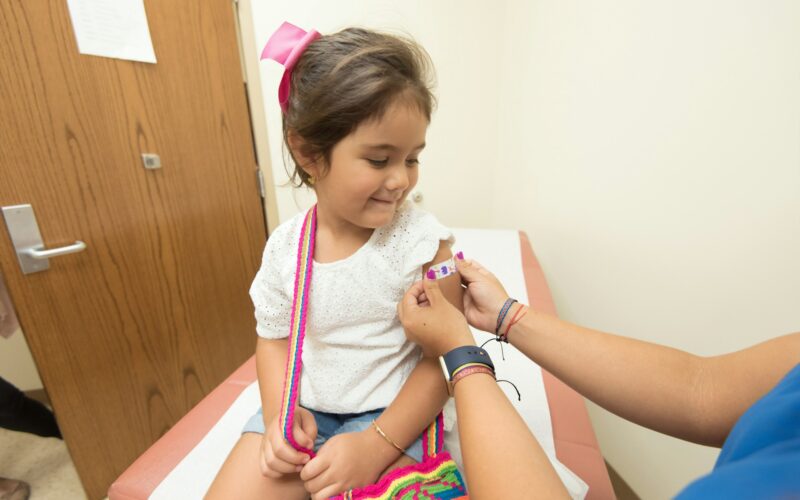
When you make purchases through our links we may earn a small commission.

Photo Credit: CDC
Put It On Your Wall: CanvasOnDemand.com
Help us spread the word about the benefits of Universal Basic Healthcare for only $1.99 a month – every dollar helps.
🇺🇸
Don’t forget to ‘Like’ our social issues Facebook page, Partisan For The People, where you can comment on – and share – all our latest posts.
In the pursuit of fostering a healthier society, the concept of Universal Basic Healthcare (UBH) has gained significant traction. Universal access to healthcare services ensures that every individual, regardless of their socio-economic status, has the right to essential medical care. This article explores how the implementation of Universal Basic Healthcare can lead to better public health outcomes, benefiting individuals and communities at large.
Prevention and Early Intervention
One of the key advantages of Universal Basic Healthcare is its emphasis on preventative measures and early intervention. With universal access to regular check-ups, vaccinations, and screenings, individuals can address health concerns before they escalate into more severe conditions. By catching diseases in their early stages, the overall burden on the healthcare system is reduced, resulting in lower treatment costs and improved long-term outcomes.
Content Continues Below
Reduced Health Disparities
Universal Basic Healthcare works towards eliminating disparities in health outcomes based on socio-economic factors. In a system where everyone has equal access to medical services, individuals from marginalized communities are less likely to face barriers to essential healthcare. This reduction in health disparities contributes to a more equitable society and ensures that vulnerable populations receive the necessary attention to improve their overall well-being.
Increased Productivity and Economic Growth
A healthier population is a more productive one. When individuals have access to basic healthcare, they are less likely to suffer from prolonged illnesses that could hinder their ability to work. This leads to increased workforce productivity and, consequently, contributes to economic growth. A robust and healthy workforce can actively participate in the economy, fostering a cycle of prosperity that benefits the entire society.
Efficient Resource Allocation
Universal Basic Healthcare facilitates a more efficient allocation of healthcare resources. By providing essential services to all citizens, the healthcare system can focus on preventative and primary care, reducing the strain on emergency services and expensive treatments for advanced diseases. This results in a more cost-effective and sustainable healthcare system that utilizes resources efficiently.
Improved Public Health Infrastructure
The implementation of Universal Basic Healthcare often goes hand-in-hand with investments in public health infrastructure. Accessible healthcare services require well-equipped facilities, trained healthcare professionals, and a robust healthcare delivery system. These improvements not only benefit individuals seeking care but also enhance the overall resilience of the public health system, enabling it to respond more effectively to emerging health challenges such as pandemics.
Healthier Communities
As individuals receive consistent and timely healthcare, the overall health of communities improves. Healthy individuals are more likely to engage in positive health behaviors, leading to a collective improvement in lifestyle choices. This ripple effect can have long-lasting benefits, creating communities that prioritize well-being and contribute to a positive societal environment.
The Last Word
Universal Basic Healthcare stands as a cornerstone for achieving better public health outcomes. By focusing on prevention, reducing disparities, boosting productivity, optimizing resource allocation, and enhancing infrastructure, a society with universal access to healthcare is better positioned to address health challenges effectively. As the world continues to navigate complex health issues, prioritizing and implementing Universal Basic Healthcare is an investment in the well-being and prosperity of present and future generations.
You’ll get more articles like this – and our favorite promotional offers delivered straight to your inbox.
By submitting this form you agree to our terms and conditions. You can unsubscribe at any time.

Video: Mira Shape Knitted TRANSPARENT Try-On. YES or NO?

🔥 Transparent Sheer Tops Try-On Haul | Camila Elle 🔥


To ‘Drill, Baby, Drill’ Big Oil Is Saying ‘No, Thanks’

The D Files: Haley’s Role Model

The Short-Term Appeal and Long-Term Risks of MAGA Policies


Video: Mira Shape Knitted TRANSPARENT Try-On. YES or NO?

🔥 Transparent Sheer Tops Try-On Haul | Camila Elle 🔥


🔥 Transparent Sheer Tops Try-On Haul | Camila Elle 🔥


To ‘Drill, Baby, Drill’ Big Oil Is Saying ‘No, Thanks’















